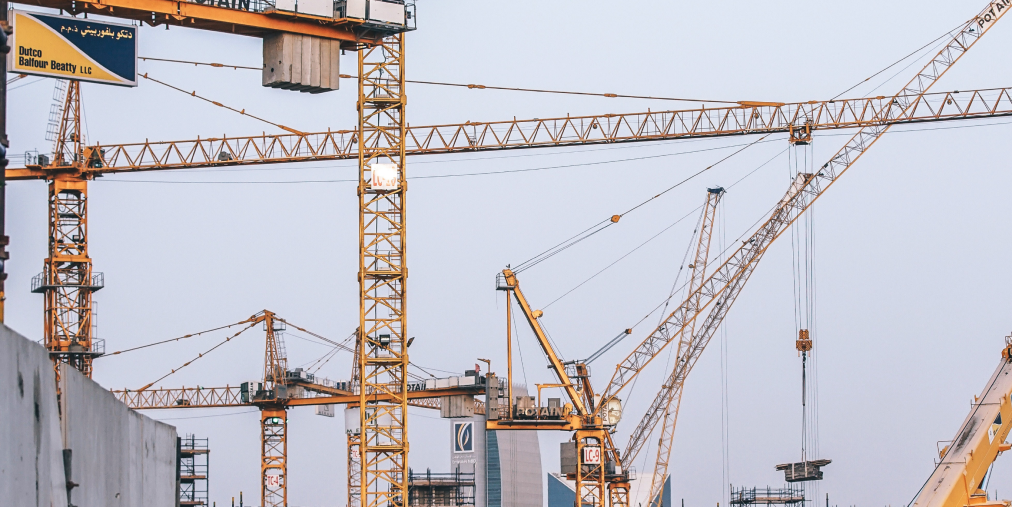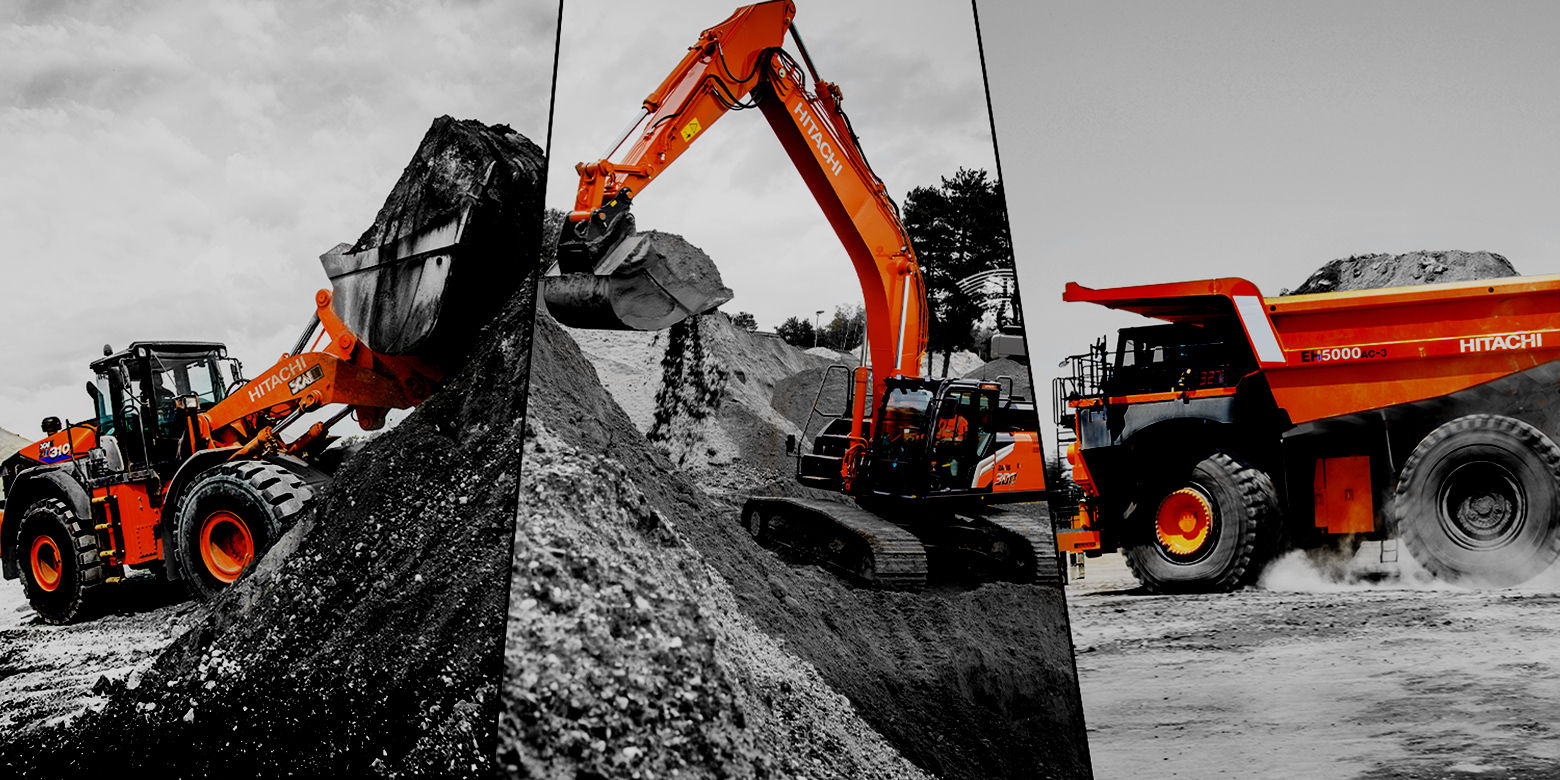Forklift Rental in Tuscaloosa AL: Versatile Lifting Solutions for Your Demands
Forklift Rental in Tuscaloosa AL: Versatile Lifting Solutions for Your Demands
Blog Article
Discovering the Financial Advantages of Renting Building And Construction Tools Compared to Owning It Long-Term
The choice between possessing and renting construction tools is crucial for economic management in the sector. Leasing offers instant price financial savings and operational adaptability, allowing firms to allocate sources much more effectively. Recognizing these nuances is vital, especially when considering how they line up with specific job needs and monetary strategies.

Cost Comparison: Renting Out Vs. Owning
When examining the economic implications of possessing versus renting building devices, an extensive price comparison is crucial for making informed decisions. The selection between renting out and having can considerably affect a firm's bottom line, and recognizing the connected expenses is essential.
Renting out building and construction tools typically includes lower in advance expenses, permitting companies to assign capital to various other functional needs. Rental costs can accumulate over time, possibly going beyond the expenditure of ownership if equipment is needed for an extensive duration.
Alternatively, having building tools calls for a considerable first financial investment, along with ongoing costs such as devaluation, funding, and insurance policy. While possession can result in long-lasting savings, it likewise locks up funding and may not provide the exact same degree of versatility as renting. Additionally, owning equipment demands a commitment to its utilization, which might not constantly line up with job needs.
Ultimately, the choice to lease or possess needs to be based upon a comprehensive evaluation of details task demands, economic capacity, and long-lasting critical objectives.

Maintenance Expenditures and Obligations
The selection in between possessing and renting out building equipment not only includes economic considerations yet additionally incorporates recurring maintenance expenses and duties. Owning equipment calls for a considerable commitment to its maintenance, that includes regular assessments, repair work, and possible upgrades. These responsibilities can rapidly gather, resulting in unexpected prices that can strain a budget plan.
On the other hand, when leasing devices, upkeep is usually the obligation of the rental firm. This setup permits professionals to prevent the monetary concern connected with deterioration, as well as the logistical obstacles of organizing repair services. Rental agreements typically include arrangements for maintenance, meaning that contractors can concentrate on finishing projects as opposed to stressing over equipment problem.
Additionally, the varied variety of equipment available for lease enables companies to pick the most recent models with advanced technology, which can improve performance and performance - scissor lift rental in Tuscaloosa Al. By choosing for rentals, organizations can stay clear of the long-lasting obligation of equipment devaluation and the associated upkeep headaches. Inevitably, examining upkeep costs and responsibilities is crucial for making a notified decision concerning whether to rent or own building and construction devices, significantly influencing overall project costs and operational efficiency

Devaluation Influence On Ownership

A considerable aspect to think about in the decision to have construction devices is the impact of depreciation on overall possession costs. Devaluation stands for the decline in worth of the equipment over time, affected by factors such as use, deterioration, and innovations in innovation. As devices ages, its market price lessens, which can significantly affect the owner's financial setting when it comes time to sell or trade the tools.
For building and construction firms, this depreciation can equate to considerable losses if the equipment is not utilized to its greatest possibility or if it ends up being outdated. Proprietors need to represent depreciation in their financial estimates, which can result in higher total costs contrasted to renting. Furthermore, the tax effects of depreciation can be intricate; while it might give some tax advantages, these are typically offset by the fact of minimized resale worth.
Eventually, the worry of depreciation highlights the relevance of understanding the long-lasting monetary commitment entailed in having construction equipment. Companies need to very carefully assess just how often they will make use of the tools and the potential financial effect of devaluation to make an educated decision regarding ownership versus leasing.
Financial Versatility of Renting Out
Leasing construction devices uses significant monetary adaptability, allowing business to designate sources extra efficiently. This flexibility is particularly critical in an industry identified by fluctuating project needs and differing work. By deciding to rent, businesses can prevent the considerable funding outlay needed for acquiring tools, protecting capital for various other operational demands.
Additionally, renting devices makes it possible for business to customize their tools selections to specific job my latest blog post requirements without the long-lasting commitment related to ownership. This implies that organizations can easily scale their devices inventory up or down based upon existing and expected job requirements. As a result, this flexibility decreases the risk of over-investment in machinery that may end up being underutilized or outdated over time.
Another monetary benefit of leasing is the possibility for tax advantages. Rental settlements are usually considered general expenses, permitting for instant tax obligation deductions, unlike depreciation on owned and operated tools, which is topped several years. scissor lift rental in Tuscaloosa Al. This instant expense acknowledgment can better boost a business's cash money position
Long-Term Task Considerations
When assessing the long-lasting demands of a building and construction business, the choice between renting and having devices becomes extra intricate. Secret variables to take into consideration consist of job period, regularity of usage, and the nature of upcoming tasks. For projects with prolonged timelines, purchasing tools may appear advantageous because of the potential for reduced general costs. However, if the devices will not be used continually throughout tasks, possessing might cause underutilization and unneeded expense on insurance, storage space, and upkeep.
Furthermore, technological developments position a significant consideration. The building sector is evolving swiftly, with brand-new devices offering enhanced efficiency and security functions. Renting allows business to access the most current innovation without dedicating to the high in advance expenses connected with acquiring. This flexibility is specifically beneficial for companies that deal with diverse jobs calling for various kinds of tools.
In addition, financial stability plays an important function. Possessing tools commonly entails substantial resources financial investment and devaluation additional info issues, while leasing permits more predictable budgeting and cash flow. Inevitably, the choice between renting and possessing should be lined up with the strategic goals of the building organization, considering both current and expected project needs.
Conclusion
In final thought, leasing construction tools offers substantial monetary benefits over long-lasting possession. Inevitably, the decision to rent out rather than very own aligns with the vibrant nature of construction tasks, allowing for flexibility and accessibility to the newest equipment without the monetary burdens linked with ownership.
As tools ages, its market worth lessens, which can considerably influence the proprietor's monetary setting when it comes time to trade the devices or market.
Leasing building devices uses substantial financial versatility, allowing companies to allocate sources much more effectively.In addition, renting out equipment allows companies to tailor their equipment selections to certain job requirements without the lasting commitment associated with possession.In final thought, renting out building and construction tools offers considerable financial benefits over long-lasting ownership. Eventually, the choice to lease instead than own aligns with websites the vibrant nature of construction projects, permitting for flexibility and accessibility to the latest tools without the economic problems associated with ownership.
Report this page